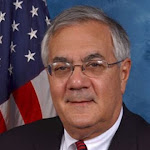Tuesday, October 13, 2009
Baucus bill passes. Now what?
“A deficit neutral bill shouldn't be the end to our means.
Congress needs to live up to their promise and provide a bill
that both lowers costs and makes insurance available to all.”
So it's all come down to this.
The months and months of work, of compromising, and of harsh rhetoric from both sides of the political spectrum all come down to these coming weeks in which the true nature of this health care bill will be decided.
It seems those in control have decidedly come to the conclusion that a public option within the bill makes it impassable, and to greater outrage, those same people hope to just meet the pre-requisites they set themselves for in the bill as a simply deficit neutral bill; as the reconciliation process requires and is pretty much implicit by the nature of the bill.
What we have here is an incredibly complex process for an extremely difficult problem.
We have of course many other hurdles to overcome besides this bill getting out of committee, but the reality of what needs to be done keeps its shadow over all the key players in this thing, and the hope for a bill that will truly be effective in fulfilling the White House's promises for cost reduction seems to fade just a little bit more with every day that passes.
The bill having gotten out of committee and with true deliberations now beginning, it should be a foregone conclusion that a deficit neutral bill shouldn't be the end to our means. Congress needs to live up to their promise and provide a bill that both lowers costs and makes insurance available to all.
It seems incredible that the bill is still being debated in its current form immediately following a report from insurance companies that state the Baucus bill isn't enough to prevent premiums from increasing related to the requirement of having to cover pre-existing conditions. It seems even more incredible that like many have said, this report is actually the best argument for a public option whether or not the report was done haphazardly.
So where do we go from here?
Reconciliation is still on the table, but the process would make Harry Reid and Nancy Pelosi wish democrats weren't in the majority.
However, reconciliation still allows us to do the most with less resources and a much lower hurdles to overcome. A public option would be passable under reconciliation as long as it's restructured to be a necessity in budget spending. It would allow us to mesh bills from the finance committee and the health committee in a very effective way and bring about the type of changes that will truly make a difference in lowering costs.
However, the biggest reality check we get in all this is that unless the whole deal that dems have with Senator Snowe falls apart, then the Baucus bill will inevitably become law without any true mechanism to significantly lower costs. Lowering the deficit over ten years by $49 billion dollars seems a tad bit optimistic for the Baucus bill, although the Congressional Budget Office's tends to err on the conservative side.
So really now, where do we go from here?
It's hard to really say. The public option is not dead but on its last throes unless the Baucus bill dies, which is unlikely.
Can the democratic congress add a public option later? Yes, but it will be futile considering the make up of the Senate will change within a few months time and the biggest thing preventing any bill from passing is the 60 vote cloture rule in the Senate which forces debate on a bill to end and allows for a vote to take place.
It will truly be up to Harry Reid to decide where to take this bill. He can either bring this Baucus bill to the floor, open to cheese grating that will be done by republican amendments only to have nearly or 100% of republicans strike down the bill, or he can pull a political magic trick and maneuver the bill into it looking like a dead bill that has no chance of passage and get the process of reconciliation going with the public option as a starter and making sure most if not all amendments are already in place before the bill begins to be debated as part of reconciliation. We know the liability this will be for many democrats, but America doesn't need a watered down health care bill and it surely doesn't need its legislators to stand down on one of the biggest pieces of legislation they will ever vote on for fear of not being re-elected.
We already know what the White House wants and what the congress expects, maybe for once we can have a confident democratic leadership and a confident congress to actually get the best and most effective bill passed whether or not it's at the expense of republicans and the loss of a few democratic seats to republicans.
We'll just have to see.
Monday, October 12, 2009
A Practical case for a lasting democratic Majority
There exists few instances in history that the political climate of today can be compared to.
The post election turmoil that followed the highly contentious and disputed 2000 election pales in comparison. Even the race of 2004 that had many thinking a new President was inevitable saw little uproar from either party after everything was said and done.
It seems the last time the country was so bitterly divided politically, congress was debating the civil rights and immigrations bills in the 60's.
Thankfully, neither side has been radicalized too far into fringe status. We have at least a basic overall loyalty to our establishments, to our leaders, and to historic decorum that a fear of political blackmail and warfare that may remind us of civil war era politics is nonexistent.
In America, we don't fear of recurring slayings for a political purpose outside of lone wolves. Most of all, in this country we treasure something few other countries can lay a claim to, that after over two hundred years of continued peaceful transfers of power (a successful democracy being defined in large part by peaceful transfers of power), we can still hope and believe that we will continue to be the shining exemplary democracy for the world. This idea has indeed become a foregone conclusion for most Americans.
The exhortation therefore isn't that we're close to breaching or betraying these ideas, neither is it that our system has become more combative than democratic, although in all honesty we have already reached the tipping point to where the latter is true.
The polarization of American politics has done worse than affect voters and intensify the efforts of Americans hoping to get a certain result from Washington, it has espoused a very persistent political deadlock in the legislature and has to a great degree been responsible for causing the minority party in the US to be obstructive and not productive.
The new reality since George Bush left the White House is that the majority MUST rule, otherwise the congress ends up deadlocked. It is that if the majority can't get something done on their own, the minority will not lend the hand to pass legislation critical for the good of the nation.
To that end, the democrats can't thank the Bush's administration enough for its horrid failures and for handing them such an incredibly commanding majority in 2006 on to 2008. But commanding majorities don't last very long and rarely create the kind of political environment that would allow for amicable bipartisan debates and bills being passed in congress the inevitable re-alignment of the congress happens.
There is of course an added benefit with democrats being able to maintain majorities well past 2010 and even past an Obama re-election.
Democrats are unlikely to maintain majorities large enough in the Senate to pass any big bills between the 2010 and 2012 elections, but barring a failure of the health care bill or the economy taking another dip into negative territory, democrats will retain the White House in 2012. The American people still support the President in huge numbers and unlike Bill Clinton, Obama will have had passed a health care bill by his re-election campaign; his efficacy in getting several significant bills passed during the first year of his presidency way overshadowing Bill Clinton's successes during his first term.
If the democrats maintain control over the congress, the republican party will continue to sink further into remission. A two party system cannot work effectively if one party maintains positions that remain unpopular and symbols of an era gone. We can look at Japan's LDP's disastrous loss this year for evidence.
A continued democratic presence will incite a true rediscovery of conservative principles. Fareed Zakaria once said of conservatism during the Reaggan era that the ideology worked at the time because the ideology matched the problems of the time. He also said that the new realities of the world require new solutions and that rings true for an opposition that is supposed to sharpen the sword of the majority and not try to block it entirely.
Even former Senator, Bob Dole said, "I don't want the Republicans putting up a 'no' sign and saying, 'we're not open for business."
The sad truth is that this is where we are. Perhaps a lasting democratic majority will re-teach both democrats and republicans how to govern. For democrats, the lesson will be by the revival the liberal fervor that was felt when Lyndon Johnson left the White House surrounded by the victories of the civil rights movement, and for republicans, a chance to remember a day when they governed and had the support of a productive minority democratic party under George Bush.
It's obvious that both parties have things to learn from their respective positions at this moment. Democrats need to learn not to steam roll over the opposition and republicans need to quit being unrelentingly obstructive.
Perhaps giving democrats a few more years time will be precisely what American politics needs for their to be two competing and both workable solutions to a single problem, rather than one proposed solution and the opposition simply rallying against it.
Sunday, October 11, 2009
The Revival of multi-lateralism : What Obama did accomplish
The Revival of Multi-lateralism
What Obama did accomplish
by Jose A Ibarra
It's been the worst of times and at times, it even felt like we were close to the end of times.
As bad as the situation has gotten in recent years, the 90's were known for bringing relative peace among major powers that in many ways left us unprepared for the shaky ground the international system would find itself in a few years deep into the new millennium.
Chaulk it up to bitterness from being led into a war based on false pretenses, chaulk it up to anger felt by non-participants of the Iraq war when being told they were against the United States if they didn't participate. You could chaulk it up to the Bush administration's neoconservative and ultra realist view of international relations that alienated the other members of the UN Security council and increased reservations about our allies joining us in any conflict. Chaulk it up to fear of being on the receiving end of terrorist attacks for supporting the United States, or you can even simply chaulk it up to the world feeling disillusionment at the perception that the United States had turned its back on its values.
We've had this discussion plenty of times and there's enough minds still pondering this whole thing, but the fact of the matter is that after 9/11, for whatever reason, international cooperation began to crumble. The idea that the modern nation could co-exist in a unipolar world with a single superpower began to really come under attack.
We find ourselves taking on many challenges today that far exceed the ones we did in the 90's because of this, but we and the national media are here today discussing the validity-the legitimacy of President Barack Obama receiving the Nobel peace prize.
Of course there's not so much outrage as much as there is annoyance of today's national discussion. There is so much that we are all missing in the midst of this 'does he deserve it' discussion that we do ourselves a disservice to address the prize's merits instead of actually putting a light to President Obama's true accomplishments.
I believe Fareed Zakaria has described it best, 'it's a gesture of good will' in which the United States is being welcomed back to the world community. There was a lot of attention to then candidate Obama's reference to himself as a 'world citizen' in his European tour during his presidential campaign, but this prize is a bud from that seedling that he planted during that speech.
To our own peril and the peril of the world, during the Bush administration there was almost a complete breakdown in communication among the major powers of the world.
Tensions between the States and China intensified with talk among Bush advisers and the gasoline added to that by people such as Glenn Beck and Sean Hannity about the growing 'economic threat' that China was becoming for the U.S. Russia was not going to take the element of Mutually Assured Destruction being eliminated for them by allowing us to put down a missile defense system that would make most of their nuclear capability just take up dead storage space. Europe was losing its patience for war in the Middle East and have since heavily withdrawn from both Afghanistan and Iraq. The world's perception of the United States now having turned toxic.
We have had several gatherings of the United Nations to take on the issue of North Korea and Iran but we continuously run into problems convincing all of the veto wielding members of the Security Council to vote with us. The ability to even respond with one voice has repeatedly been tested in recent years and the inability to come together on issues has made the Security Council very ineffective and incapable of doing much of anything, let alone be a tool to mitigate developing conflicts such as the Russian-Georgian war.
Iran has been participating in Iraq by providing men and arms. North Korea has turned its back to the United States over the Bush administration's failure to keep up our end of the bargain in talks for nuclear disarmament.
Despite all this, in 9 months, cooperation between the US and Russia has been restored by the elimination of an unnecessary missile defense program and we've regained their cooperation in the UN Security council. China has made historic moves to protect foreign journalists covering China, changing a long time record of censorship, and has also been more sympathetic to American concerns on North Korea and thus has successfully pushed North Korea to restart talks of disarmament.
The most significant moves the President has taken in reviving American multi-lateralism has been in sitting down with Iran for the first time in decades. Not only have we gotten them to the table, but through this issue the United States, Germany, the UK, France, and even now Russia has rediscovered what a united front is and has restrengthened the idea that the world's best solutions to its problems are global solutions.
The turn around of the past few months over the past few years is very significant. In the most pessimistic of expectations, we could've been heading into an era of great collusion against the United States resulting from continued self destructive actions when dealing with the rest of the world. The reality is that there obviously wasn't good results from immovable hard lines against our own allies. The recognition now is that the world's problems cannot be solved with a fractured response. The gains we've made this year in reviving international cooperation are truly incredible. It's a reason to really sit back and question how consequential just on these accomplishments the Obama administration will be for future global relations.
Is it really that far out there to award someone for a change of tone, a change in the way that a whole country that is the most powerful one in the world deals with the rest of the world? It seems insulting to the award itself that this in itself would not qualify you as a good candidate for the award, considering the terrible choices Al Gore and Woodrow Wilson have been in the past.
Do we not reward our children and our most humble pro sport players recognition for being good sportsmen, by showing restraint, good manners, and intelligence when dealing with their competition?





























































